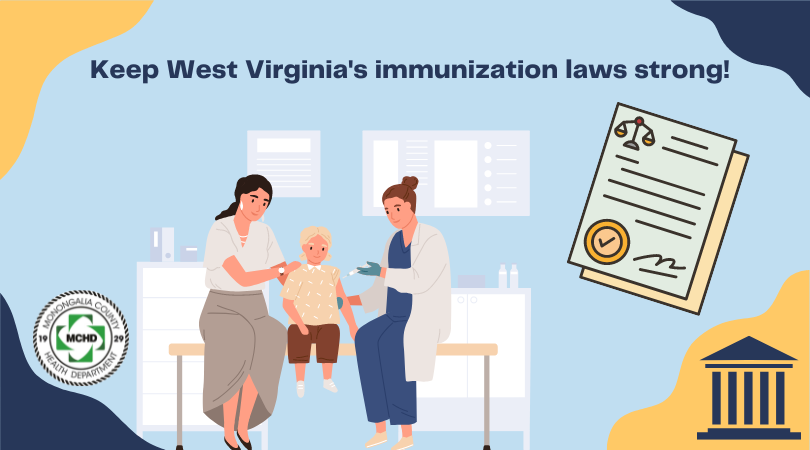Keep West Virginia's immunization laws strong

Feb. 27, 2023
Dr. Lisa Costello has never seen a case of measles, and she would like to keep it that way.
Dr. Costello, a pediatric hospitalist at Ruby Memorial Hospital and assistant professor of pediatrics at West Virginia University, worries about several bills currently under consideration by the state Legislature that would weaken immunization laws in West Virginia.
Considering that West Virginia is among six model states that allow only medical exemptions as the reason for children not to be immunized against dangerous but preventable diseases, these bills seem like a reversal of progress.
“Childhood immunizations — immunizations in general — are one of the greatest success stories, if not the greatest success story, of modern medicine,” Dr. Costello said. “Immunizations have saved countless lives and they save resources. They help people from getting severely ill or dying from the diseases that we have vaccines for.”
As Dr. Costello noted, these diseases include polio, diphtheria and others — “diseases that most of us have never seen because we’ve been able to prevent them through routine immunization.”
Measles is a highly contagious disease that can cause hospitalization, long-term side effects and death. It was considered eliminated from the United States in 2000, but lax immunization laws in other states prompted a comeback.
Physicians and public health professionals can point to the fact that during the measles outbreak of 2019, 1,274 individuals in 31 states were reported to come down with cases of measles.
One of the 19 states that didn’t see a case? West Virginia, which allows exemptions for medical reasons only. These would be for children entering the school system who, for example, might be undergoing leukemia treatment whose compromised immune systems prevent them from building sufficient protection through immunizations. This makes it all the more important for
everyone else to do their part to provide herd immunity.
“West Virginia is seen as a national leader when it comes to immunization laws,” Dr. Costello added. “We follow the recommendations of the American Academy of Pediatrics and for our school entry, we only allow medical exemptions.”
Until recently, only two states followed these guidelines. Mississippi was the other one. Now there are six that do not allow non-medical exemptions. The other four are California, Connecticut, Maine and New York.
So why change now? Why move backward when other states are moving forward? Why pass legislation that will most likely introduce measles, and perhaps other diseases, back into West Virginia?
Consequences can range from having sick kids at home, requiring parents to take off work to care for them, to symptoms that can cause long-term health problems or even death.
In another alarming event, Dr. Costello noted, an unvaccinated New York resident came down with polio in the summer of 2021, and wastewater testing found additional samples containing polio, some linked to the same type as the initial polio patient.
As of August 2022, the Centers for Disease Control and Prevention was still working to figure out where the individual contracted polio. The CDC’s website still states that since 1979, no cases of polio caused by wild poliovirus have originated in the United States.
Most of us are too young to remember the panic that polio caused in the 1950s, confining many individuals, including children, to iron lung machines to help them breathe or wheelchairs so they could get around.
While Dr. Costello hasn’t seen an active case of polio, she did speak with an older patient who had contracted it back before the vaccine was available.
“They told me, ‘I wish I could talk to anyone who questions getting immunizations. I didn’t have access to the vaccine. I’ve had to spend the rest of my life dealing with the consequences of polio.’”
From conversations she’s had with West Virginians about possible changes to school immunization policies, she’s heard, “Heck no, we don’t want polio to come back.” She is concerned, however, that some Mountain State residents might not realize how the current legislation under consideration would affect them.
“If someone chooses not to vaccinate their child, that choice is one that allows others to be placed at risk,” Dr. Costello said. “As a parent myself, I want my child to go to school in a safe environment, one that’s not at risk for diseases that are preventable.”
Mary Wade Burnside, the public information officer at Monongalia County Health Department, can be emailed at MaryWade.Burnside@wv.gov.